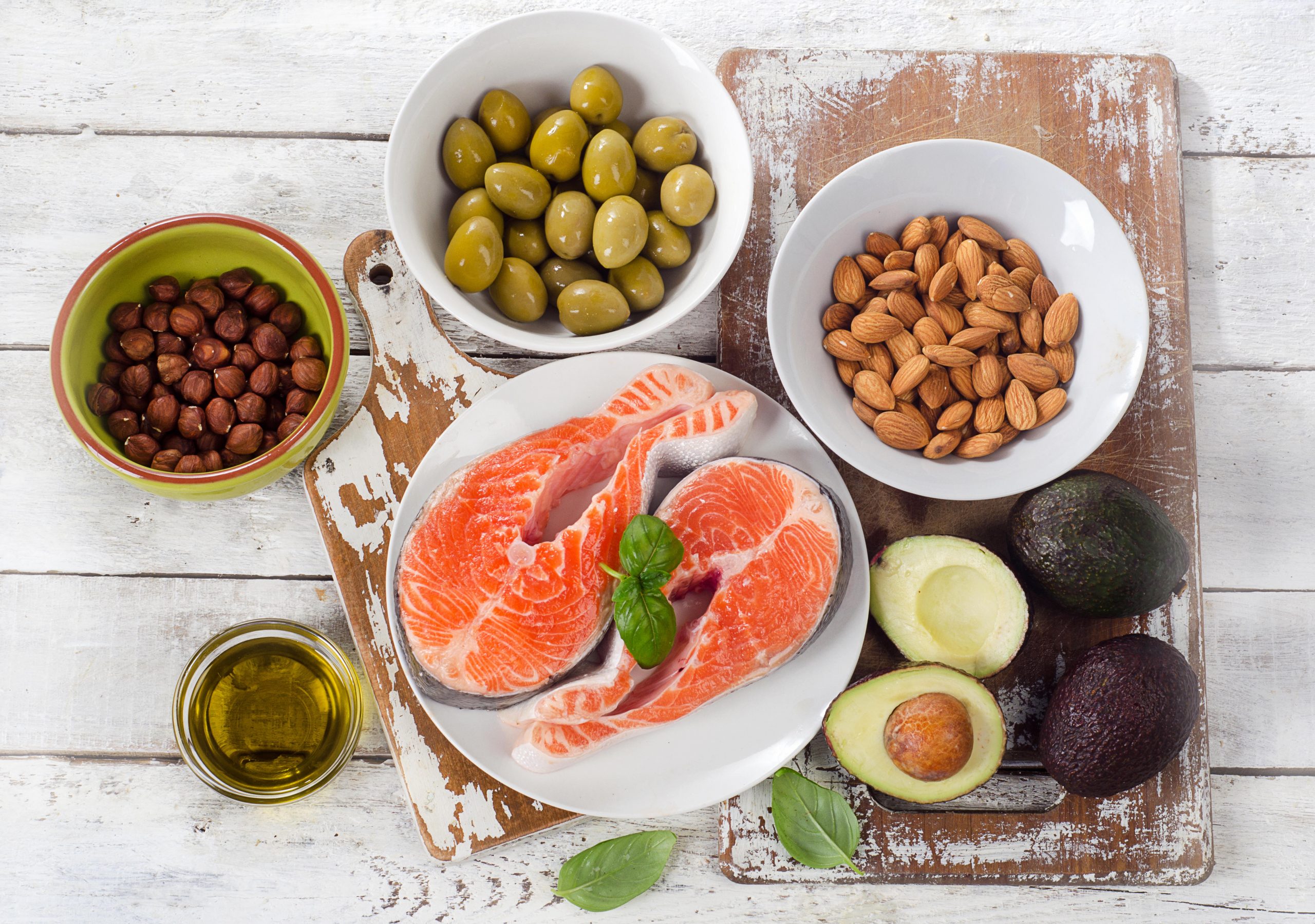How to burn fat: 15 scientifically-proven tips
Losing weight and burning fat is no easy feat, especially if you're not someone who loves exercise.


Parenting advice, hot topics, best buys and family finance tips delivered straight to your inbox.
You are now subscribed
Your newsletter sign-up was successful
We’ve read the studies and spoken to the experts to find out the best ways to burn fat.
How to burn fat effectively is one of the most important things to think about when you start to make lifestyle changes to lose weight. But while it may seem straightforward - move more, eat less, there’s actually a lot more to it than that. Studies have shown that there are many factors that contribute to fat loss, from the types of food we eat to the way we exercise.
Kirsten Whitehouse, a personal trainer and nutrition advisor, explains: “Your weight will fluctuate massively depending on many factors, such as the salt or carbohydrate content of your last few meals, whether you have got enough sleep or drunk enough water and where you are at in your menstrual cycle. However, fat loss aims for lasting change in your body’s make up. Simply said, fat loss is an equation whereby you use more calories than you consume: thus achieving a calorie deficit.”
So to help keep things simple, we’ve consulted a number of experts in the fields of health and nutrition and looked at various studies to find out how to burn fat the best way.
Whether you’re wondering how to lose belly fat or you’re stuck in a weight-loss plateau and feel like you can't lose weight, we have the answers to get you motivated.
1. Drop your calorie intake
A calorie deficit - consuming less than you burn - is one of the simplest things to try when you’re thinking about how to burn fat.
Kirsten Whitehouse, who runs The Wolf Approach boot camp, says: “The healthiest amount of fat loss to aim for is around 1lb per week. A pound of fat contains 3,500 calories, meaning you have to find a way to lose an extra 500 calories per day on average. You can do this by dropping your caloric intake by 500 per day, so fewer calories through food, or by increasing your caloric expenditure by 500 per day, so doing more exercise. Alternatively, you can do a combination of both, which is the most realistic, healthy and sustainable.”
Parenting advice, hot topics, best buys and family finance tips delivered straight to your inbox.
The NHS states that the average number of calories needed by women is 2000 per day and 2500 for men. To be in a deficit you'll need to eat for fewer calories than you. Work out your normal daily calorie expenditure with a calorie calculator - or, track your calorie intake via various fitness apps or a Fitbit.
Weight loss studies found that reduced-calorie diets result in clinically meaningful weight loss that will be easier to maintain. And, as Kirsten states: “Staying in a healthy deficit will lead to sustainable fat loss.”
2. Increase your cardiovascular exercise
As well as decreasing the number of calories you eat, you should be aiming to increase the number of calories you burn every day.
Cardiovascular exercises, such as walking, running, climbing stairs, swimming and cycling will all burn calories fast and help you towards the 250 to 500 calories per day that you need to burn.
Kirsten says: “If you are new to cardiovascular training, start by going for regular walks and increasing the distance. A step tracker or even an app on your phone will help you keep track of your steps. Try to walk a little more each day or increase your pace."
If you're not a big fan of the gym and would rather ease yourself into a fitness regime, take a look at these ideas for gradually boosting your cardiovascular exercises:
• Walking for weight loss • How to start running • Couch to 5K • 15-minute workouts
This analysis of several weight loss studies found that combining diet with exercises provided greater long-term weight loss than just dieting alone.
3. Add some resistance training into your routine
Resistance training is slower, more controlled exercise using either your own body weight, such as a push up, or equipment such as dumbbells and kettlebells.
Kirsten says: “Resistance training aids muscle building, which in turn means ongoing fat burn. Remember the saying that muscle weighs more than fat? It’s not entirely true: a pound of muscle weighs the same as a pound of fat. That same pound of fat can take up up to four times as much space in your body though, so this is why fat loss wins over weight loss.
"You may find you are weighing the same, or even more, on the scales, but wearing a couple of dress sizes smaller. Guess which one people will notice?"
Studies have found that as well as helping to tackle obesity, resistance training can help to reduce major risk factors for diseases like heart disease and type 2 diabetes. This is because it lowers blood pressure and blood sugar levels and reduces excess body fat around the waist.
4. Do a HIIT workout
High-intensity interval training (HIIT) workouts are renowned for burning fat and are recommended by many personal trainers - including Joe Wicks who is famed for his 15-minute workouts.
The workouts alternate between bursts of intense activity and periods of moderate activity or rest. The reason they are so effective is that you burn more calories in a shorter period of time compared to other exercise methods.
This study found that HIIT workouts three times per week for 15 weeks, compared to the same frequency of steady-state exercise, was associated with significant reductions in total body fat.
For even better results for how to burn fat, Fitness specialist James Davis, from The Midlife Mentors, recommends doing a fasted HIIT.
He said: “We recommend short bursts of high-intensity interval training pre-breakfast when glucose and glycogen are low. This means the body taps into fat for energy.”
https://www.youtube.com/watch?v=8ortypveAL0
5. Cut back on alcohol
As most of us now know, alcohol contains ‘empty calories', meaning they have no nutritional value at all. A heavy night of boozing can often lead us to make unhealthy food choices. Who doesn't want a greasy burger when they're drunk or hungover? These cravings, of course, can have a serious impact on our waistline.
James Davis says: "Alcohol is high in calories and sugar so cutting it out is an easy way to reduce your overall calorie intake. Alcohol also stimulates our hunger hormone ghrelin, meaning we’re more likely to feel the urge to snack. So cutting your drinking back or out is likely to pay big all around dividends to your health."
When we've been drinking, our body works really hard to break down all the alcohol in the system - as a result, it's not able to fully process our excess fat and sugar, which can cause us to gain weight. As James explains, "The body prioritises alcohol for metabolism over food, meaning if you’re eating and drinking you could be more likely to end up in an energy surplus, which leads to weight gain."
Studies show that 4 out of 10 adults are unaware of alcohol calories and their food equivalents. According to Drink Aware for example, one large glass of red wine contains around 228 calories, which is the same as a jam doughnut.
If you don’t feel like you can stop drinking alcohol entirely, try starting off with having certain nights of the week alcohol-free. Aside from losing weight and burning fat, there are plenty of other benefits of not drinking alcohol - including better sleep. This knock-on effect will also prevent you from reaching for the sugar sacks when you feel tired and need an energy boost.
You could try switching to drinks with fewer calories and staying away from high-calorie ones like beer or sugary mixers. Here are some of our suggestions:
• Low calorie alcoholic drinks • Low calorie beers • Low calorie wines
6. Get more sleep
Getting more sleep seems like it could be counter-productive. But actually, it can help you to lose weight because a lack of sleep means less energy, which can lead to tiredness and a change in our glucose levels.
Sleep deprivation also increases our hunger hormones, such as ghrelin. This in turn increases our appetites and we are more likely to eat unhealthy snacks to give us a boost. Researchers found that even a single night of sleep deprivation increased ghrelin levels and feelings of hunger in participants.
Nutritional therapist and personal trainer Anne Iarchy says: “Sleep helps regulate hormones, including your hunger hormones leptin and ghrelin. By sleeping more, you'll feel less hungry and more satisfied after eating. Sleep also regulates cortisol levels, your stress hormone which affects your ability to lose fat. It also affects insulin, which is linked to greater fat storage."
The NHS recommends adults should aim for 6 to 9 hours of sleep a night.
https://www.youtube.com/watch?v=t0kACis_dJE
7. Try a low carb diet
Carbohydrates trigger the release of insulin, a hormone that leads to energy (or fat) storage. So you’re trying to work out how to burn fat, lowering your carb intake can help you enter ketosis. This is when the body starts to burn stored fat for energy instead of carbs.
A study by The New England Journal of Medicine found that a group of obese adults following a low-carb diet lost 7% of their total body weight in six months. This was more than double the amount lost by another low-fat group, which lost 3%.
There are plenty of low carb diets for weight loss out there, and we have plenty of low carb recipe collections including:
• Low carb breakfast ideas • Low carb lunch ideas • Low carb dinner ideas
8. Drink more water
A 2013 review of studies found that drinking more water was helpful for people trying to lose or maintain their weight loss.
Anne explains: “Water suppresses appetite and boosts the metabolism. It makes exercising easier and more efficient by lubricating the joints properly, but also giving the muscles the hydration it needs. Water also increases lipolysis, a process by which the body burns fat for energy.”
There are plenty of other benefits of drinking water, including clearer skin, improved brain function and more eneergy.
The NHS recommends drinking 6 - 8 glasses of water a day.
9. Give intermittent fasting a go
Intermittent fasting is a popular option for people looking to burn off any extra fat. As the name suggests, it means going without food, or with a smaller amount of food for specific time periods.
There are many different intermittent fasting plans, including the 5:2 diet, which restricts calories for two days of the week. The 16:8 diet is also popular. It involves fasting for 16 hours of the day and eating healthily for the remaining 8.
A study by the University of Illinois at Chicago found alternate day fasting can result in 3%-8% weight loss if followed for three to eight weeks, with results peaking at 12 weeks.
However nutritional therapist Aneequa Godart warns intermittent fasting should not be used as a long-term solution to weight loss. She says: “There is evidence to show that intermittent fasting can boost your metabolism in the short term by decreasing insulin levels and increasing the hormone norepinephrine. This can help you burn fat and therefore lose weight. However, fasting for longer periods will have the opposite effect on your metabolism.”
10. Eat a high protein diet
Not only will a high protein diet leave you feeling fuller for longer - but, when combined with exercise, it can also help to build lean muscle. This, in turn, can speed up your metabolic rate which helps to burn more calories.
James explains: "The idea of high protein diets is that by prioritising protein you’ll eat fewer calories overall. This is because protein triggers our satiety hormone leptin, signaling to the brain that we’re full. So we eat less overall and by eating more protein, cut down our carbs and fats."
In fact, a recent 2021 study by Pomeranian Medical University in Poland compared the high protein and low glycemic index diet. They found those who followed a high protein diet lost 10lbs in four weeks, almost twice as much as those following the GI plan - who shed an average of 4.8lbs during the same period.
There are various high protein diets you can follow the most popular ones include:
• Keto diet • Atkins diet • Dukan diet • Cambridge diet • Banting diet
11. Eat healthy fats
For many years ‘fat’ was given a bad name - and many of us turned to lower fat products that were actually less beneficial as they contain higher levels of sugar.
However, including a good amount of healthy fats into your diet is now vital for good health. And, research shows found that those who have a diet enriched with healthy olive oil can help reduce their weight and belly fat more than those who good without it
Anne explains why: “Healthy fats help you absorb nutrients better, it gives you a sense of satiety and reduces spikes in your blood sugar levels so reduces cravings as well. It makes your metabolism work better, which is needed to burn fat. Healthy fats also help with hormone production which is important in total wellbeing.”
Bear in mind, that monounsaturated fats and polyunsaturated fats, found in food like olive oil, avocados, nuts and fish, including salmon and tuna, are considered to be healthy.
Whereas trans and saturated fats found in processed food, cakes, sweets, red meat, and whole fat dairy products are considered to be unhealthy in large amounts.

12. Take a dip with a wild swim
Wild swimming has grown in popularity in recent years.
While the benefits to our mental health of taking a dip in the sea or local river have often been discussed, a Danish study also found that it may be a fast way to burn fat, as swimmers use up more energy when they are chilly.
Researchers studied eight men who went winter swimming two or three times a week, before visiting a hot sauna. It was discovered that they used the equivalent of around 500 extra calories per 24 hours more on average than eight men of a similar age and weight.
13. Include probiotics in your diet
Probiotics are healthy bacteria that are important for many things in your body, such as boosting immunity, improving heart health and protecting against allergies. But, they're also particularly beneficial for digestion. While probiotics do occur naturally in the body, you can also increase your amount through food such as yoghurts, kefir and miso. Or, you can take a supplement.
A review of 27 studies looking at the effects of probiotics on weight loss found that 23 showed that they have the potential to aid in weight and fat mass loss in overweight and obese people.
This is because they restore the balance in your gut, helping to ease bloating and some of the difficulties of shedding the pounds.
Personal trainer and nutrition coach Vicki Cumberworth says: "Probiotics are incredible for balancing out gut bacteria and working towards a healthy gut which is extremely important to our health."
14. Take up an active hobby
If you’re not a fan of pounding the pavements or hitting a gym, starting an exercise regime can feel like a daunting task. But actually, there are plenty of hobbies you can take up that can help you to burn fat, while not feeling like exercise at all.
Activities like dancing, fencing and gardening can all help you burn the pounds. In fact, this study found that low impact aerobic dance was as useful as jogging or cycling for mildly obese middle aged women considering how to burn fat.
Personal trainer Rosaria Barreto, who runs Vitality Hub, says: "The benefits of having an active hobby is that it doesn't feel like a chore and therefore it's likely that you will continue to participate. Doing an activity that doesn't require you to conjure up all your might to motivate yourself promotes sustainability, self-accountability and finally enjoyment rather than dread.
"One of the biggest reasons for fad exercise habits is the fact that people are forcing themselves to do something because they have to, not because they want to. It's likely that you'll avoid yo-yo weight loss experiences if you regularly participate in an active hobby compared to forceful, purposeful exercise."
15. Adopt a long term healthy plan
However, perhaps the best and most long-term way to burn fat is to adopt a sustainable healthy eating plan. Long-term studies have shown that people who follow healthy eating plans such as the Mediterranean diet have continued benefits. These include weight loss, decrease in blood pressure and favourable glucose and insulin levels.
Vicki says: “There are so many benefits to adopting a long term healthy eating plan, mental health being at the top of the list, as our mood is directly linked to our food.Fat loss using a healthy eating approach also means it can become enjoyable. We can live our lives and be the best we can be at the same time, forming healthy relationships with food and exercise."
Lastly, remember that not all fat is equal.
There are different types of fat in the body, and some are better for our health than others.
Brown fat - ‘Often called “good” fat, it’s found in the upper back and neck, and burns calories to generate heat and keep us warm,’ explains GP and obesity expert Dr Ian Campbell. ‘Babies have plenty of it and it decreases as we age. Adults who have more brown fat tend to have naturally leaner bodies.’
White fat - Most of our body is made up of large white cells that are stored under the skin and around organs — especially the belly, arms, buttocks and thighs. It’s not all bad, says Dr Campbell. ‘White fat stores energy and produces the hormones oestrogen, insulin and cortisol, as well as leptin — a hormone that helps to reduce appetite.’
Visceral fat - When stored around the liver, stomach and intestines, this ‘bad fat’ causes damage. ‘Visceral fat can build up in the arteries, and increases the risk of many heart conditions, stroke and type 2 diabetes,’ explains Yvonne. Dr Campbell says weight loss will target dangerous belly fat stores to reduce the health risks significantly.
Subcutaneous fat - This is the fat directly under the skin - what we can squeeze. ‘It’s a combination of brown, white and beige fat cells,’ says Yvonne. ‘It’s the majority of our fat that’s found in the buttocks and belly.’
Video of the Week

Emily-Ann Elliott is an experienced online and print journalist, with a focus on health, travel, and parenting. After beginning her career as a health journalist at The Basingstoke Gazette, she worked at a number of regional newspapers before moving to BBC News online. She later worked as a journalist for Comic Relief, covering stories about health and international development, as well as The Independent, The i, The Guardian, and The Telegraph. Following the birth of her son with neonatal meningitis, Emily-Ann has a particular interest in neonatal health and parental support. Emily-Ann has a degree in English literature from the University of Newcastle and has NCTJ and NCE qualifications in newspaper journalism.